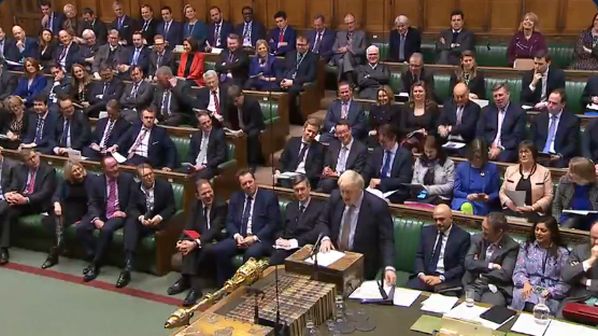In an address to parliament on February 11, prime minister Boris Johnson criticised past management of the project by HS2 Ltd, which he said has resulted in costs exploding. However, he said this did not detract from the value of the project, which will offer hundreds of thousands of extra seats to move up and down the country as well as integrating with planned local transport improvements, which the government is set to unveil in next month’s budget.
“We face a historic choice,” Johnson said. “We can try to get by with the existing route between north and south, consigning the next generation to overcrowding and standing up, or we can make the decision, no matter how difficult and controversial, that will deliver prosperity to every part of the country.”
Johnson says Phase 1 of the project - the 190km stretch from London to Birmingham and Lichfield - would cost £35-45bn in today’s prices and he expects services to be running by the end of the decade. He also confirmed that the government would proceed with Northern Powerhouse Rail (NPR), the proposal to improve east-west rail connections between northern cities, which will require new infrastructure, upgrades to existing lines and the use of HS2.
Johnson said that the north should not have to wait 20 years for improvements as proposed in the current HS2 plan. Following an assessment by the National Infrastructure Commission, Johnson said he will work closely with northern leaders to accelerate the delivery of NPR and consider options to create a new delivery vehicle for both HS2 Phase 2b and NPR. He added that the government would start treating rail infrastructure improvements north of Birmingham as part of a single integrated masterplan: High Speed North.
“This is not an either or proposition,” Johnson said. “Both are needed and both will be built as quickly and cost-effectively as possible.”
Oakervee Review
Johnson’s address was delivered at the same time the Oakervee Review of HS2, commissioned by the Department for Transport (DfT) in August 2019, was finally released to the public.
The review says that on balance, ministers should proceed with the project, stating that the original rationale for the scheme - the need to increase the capacity and reliability of the conventional British network - still holds. The review says that there are no “shovel-ready” alternatives investments in the existing network and that the government should proceed with the full Y-shaped HS2 network to Manchester and Leeds.
“If HS2 were to be cancelled many years of planning work would be required to identify, design and develop new proposals,” the review says. “The upgrading of existing lines would also come at a high passenger cost with significant disruption.
“The full network is needed to realise the highest value for money economic return on the investment of HS2. Phase 1 as a standalone scheme does not represent value for money, nor does building Phase 2 without building Phase 1.”
The review adds that failure to proceed would also present “serious consequences” for the supply chain, the fragile construction industry and confidence in British infrastructure planning.
The review forecasts a staged opening of Phase 1 between 2028 and 2030, instead of the original target date of December 2026, and that Phase 2a - the 69km stretch from Lichfield to Crewe - would be delivered within the same timescale as Phase 1. Phase 2b - the 82km section from Crewe to Manchester and 198km branch from Birmingham to Leeds - would be delivered between 2035 and 2040.
The report says that the costs for HS2 - estimated at £80.7-£87.7bn at third quarter 2019 prices by the DfT compared with a budget of £62.4bn - have escalated for a number of reasons, including the procurement strategy and contracting model for the Phase 1 Main Works Civils contracts.
Restore discipline
Acknowledging the cost overruns, Johnson said that he plans to restore discipline to the project, appointing an HS2 minister, while a new ministerial oversight group would take strategic decisions. He added that new delivery arrangements would be introduced for the “grossly behind schedule” Euston terminus and phase 2b.
“There will be changes to the way HS2 is managed,” Johnson said. “We will, in line with Mr Oakervee’s recommendations, be interrogating the current costs to identify where savings can be made in Phase 1 without the cost overruns and delays that would be associated with a detailed redesign so that the company can concentrate solely on getting phases 1 and 2a built on something approaching time and budget.”
Britain’s secretary of state for transport, Mr Grant Shapps, welcomed the announcement and said it was time to drive HS2 forward.
“Fully informed by a comprehensive and detailed scrutiny of all the facts, now is the time to drive HS2 forward, alongside a ‘High Speed North’ plan to give the North and Midlands the capacity and connectivity it vitally needs,” Shapps says. “We are also clear that the project must reform and improve, with clearer accountability and transparency to ensure its incredible benefits are matched by a tight control of costs.”

